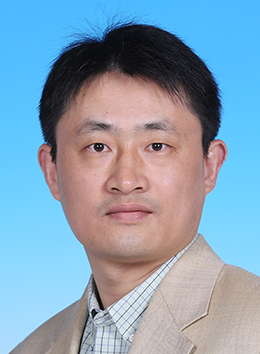
- Project Details:
| Project Code: | T23-601/17-R |
| Project Title: | Creation of Rechargeable Electron-fuels for Stationary Power Supplies and Electric Vehicles |
| Project Coordinator: | Professor Minhua SHAO |
| Coordinating Institution: | The Hong Kong University of Science and Technology |
| Participating Institution(s): | The University of Hong Kong The Chinese University of Hong Kong The Hong Kong Polytechnic University |
- Abstract
| We developed a rechargeable electron-fuel energy storage system that incorporates unique liquid fuels known as e-fuels containing regenerative electroactive species. E-fuels can store intermittent electricity harvested with solar cells and wind turbines and release the electricity wherever and whenever needed. This novel electricity-fuel-electricity conversion system consists of an e-fuel charger that electrochemically converts electricity into e-fuels and e-fuels into electricity using an e-fuel power pack. Unlike all existing rechargeable battery technologies that operate on either charge or discharge, thus preventing their use as an off-grid power supply, the proposed e-fuel system can simultaneously store and release electricity independent of site. Additionally, the ease of storing and transporting e-fuels makes the e-fuel system an excellent choice not only for grid-scale energy storage, but also for off-grid power supplies to power sites not on the grid. The stand-alone power pack even holds the potential to propel next-generation electric vehicles. |
- Research Impact
| We have assembled an internationally recognized, cross-disciplinary research team to conduct e-fuel energy storage research in close collaboration with local industrial partners. Along with accomplishing the specific research tasks, this project has made fundamental breakthroughs in the integrated theory of electrochemistry and thermal-fluid sciences, and this technology has been patented and licensed internationally. Three categories of e-fuels, namely inorganic, organic active solvated species, and nanoparticle suspensions (nanofluids) have been explored, and an optimal inorganic e-fuel system has been successfully developed. A smart microgrid integrating 10 kW solar energy and the e-fuel system has been demonstrated, in which the e-fuel charger and power pack can achieve an energy efficiency approaching 85%. The as-developed technology offers a promising solution to enabling the massive adoption of renewable energy, which will alleviate the dependence on fossil fuels, and eventually contribute to the Hong Kong government’s carbon neutrality target. So far, over 100 peer-reviewed papers have been published in prestigious journals including Nature Materials and Nature Nanotechnology. Over 20 patent applications have been filed with four granted. The project has trained more than 30 postgraduate students. During this research period, the Project Coordinator and other team members have been actively promoting the research outcomes on various occasions in an effort to seek future collaboration opportunities with other institutions and industry players. |
